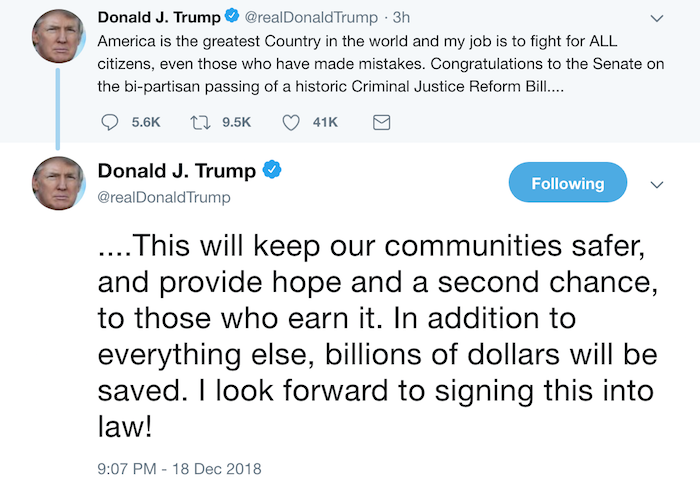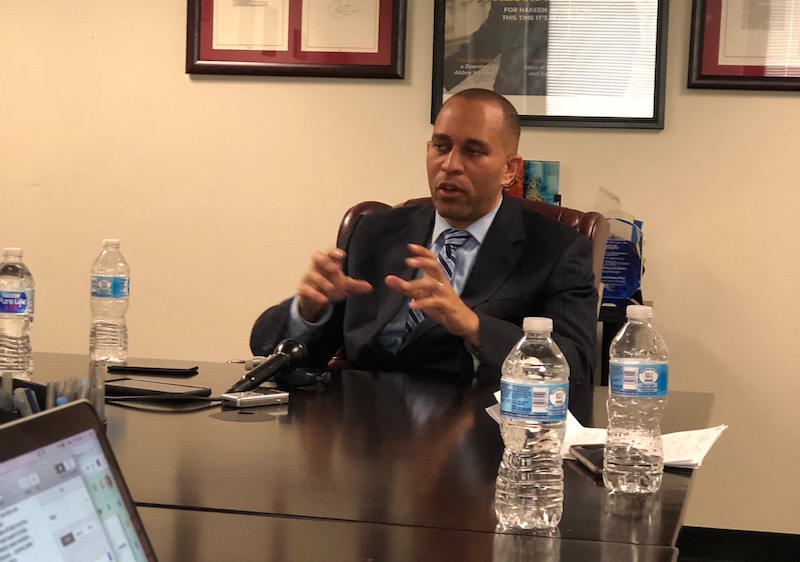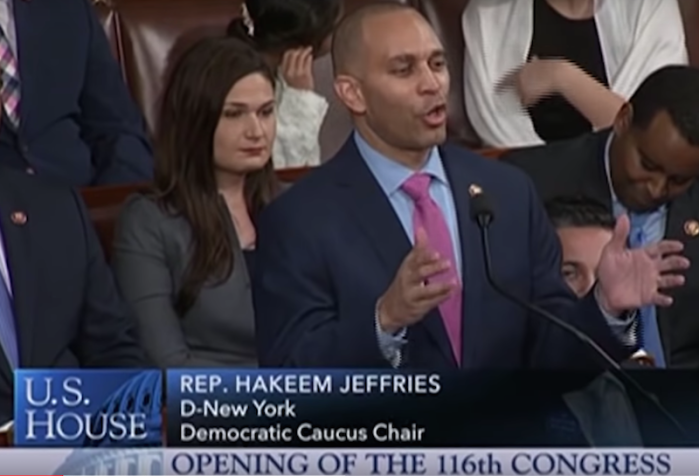U. S. Rep. Hakeem Jeffries (D-South Ozone Park, Howard Beach, Brooklyn) is poised to see his sweeping bipartisan prison reform bill get signed into law in as little as the next 48 to 72 hours.
That after the U.S. Senate in rare bipartisan fashion passed the “First Step Act” today by 87-12 vote.
Following the Senate vote, Presidents Trump signaled through a Tweet that he will sign the measure.

Jeffries, as KCP first reported locally, originally sponsored the measure along with Republican Congressman Doug Collins (R-GA) in the House and dubbed it the Formerly Incarcerated Reenter Society Transformed, Safely Transitioning Every Person Act (FIRST STEP). It passed the House in May, 360-59.

Congressman Hakeem Jeffries
The measure authorizes $50 million per year for five years to develop new programs, including education, vocational training and mental health counseling. As a result, newly-released individuals will be positioned to successfully re-enter society.
A major provision of the bill allows judges more leeway to diverge from strict mandatory minimum sentences for nonviolent drug offenders with criminal histories. And while it only affects federal and not state prisons it could lead the way to thousands of incarcerated residents jailed for drug offenses in the 1980s and 1990s to get released.
My hope is if we can get criminal justice reform over the finish line without him [Trump] backtracking in the next 48 to 71 hours,” Jeffries told KCP along with a group of local reporters this week.
“If we can get criminal justice reform done it will provide a foundation for accomplishing things in a bipartisan way that many thought not possible at the beginning of this administration. If we can do meaningful criminal justice reform by bringing Democrats and Republicans, progressives and conservatives, the left and the right together in partnership with the Trump Administration it seems to me that we can tackle almost any problem confronting the American people,” Jeffries added.
Jeffries said assuming Trump signs the criminal justice reform bill, it will set the stage for Congress and Trump to pass a $1 trillion infrastructure spending package in a bipartisan way that nobody thought possible with this administration and will create some 16 million job, Jeffries said.
Jeffries said while the bulk of the money will go towards repairing the nation’s bridges, roads and tunnels in the cities, suburbs and rural areas, it will also include some money for mass transit, and $70 billion to repair public housing across the country.
The New York City Housing Authority (NYCHA), which is home to the largest public housing developments in the country, stands to get a good portion of the $70 billion to help defray the estimated $20 billion it needs to shore up its infrastructure, said Jeffries.
However, Jeffries acknowledged that NYCHA has a long and troubled history in making sure any money given to it is administered properly.
“Most people in Washington are not confident that NYCHA is prepared right now to handle that level of capital infusion and deploy it in a way that benefits the residents we are charged to represent. That’s an issue that the city, the state and the federal government are going to have to work on together,” said Jeffries noting the federal judicial branch is also involved with oversight.
















